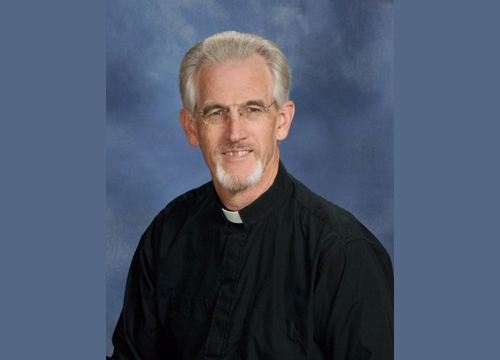Sixteenth Sunday – Ordinary Time | Jer 23:1-6; Ps 23; Eph 2:13-18; Mk 6:30-34
In our readings this weekend, we hear a number of titles or names which refer to Christ. I’ve seen a poster which lists names by which Jesus is known; if you were to take a moment or two, you might be able to name many of them. Knowing these titles is nice, but it’s not enough. Knowing what these titles or names mean, or their significance, will help us understand our call to follow Jesus.
In the first reading, Jeremiah refers to the king whom God will raise up as the (righteous) shoot of David. Referring to him as the shoot of David acknowledges he existed before David. Jeremiah also names the king “The Lord our Justice.” Jesus came to establish justice on Earth, which leads to peace.
In the reading from Ephesians, we are told Jesus is our peace, reflecting the title Prince of Peace. Psalm 23 speaks of the Great Shepherd which makes reference to the Lord as a shepherd, who provides rest for us in verdant pastures and along restful waters – a shepherd who protects and guides us through dark valleys and who spreads a banquet before us.
These titles and references to Jesus give us an indication of what it means for us who claim to be followers of Jesus and who minister in his name. To be a Christian means to follow the Good Shepherd. If we follow Jesus, we do what he would do as Good Shepherd: feed the hungry, protect the weak and vulnerable.
If Jesus is our peace, we are called to bring peace to our world. To achieve true peace, we must bring about justice in the world. St. Pope Paul VI said, “If you want peace, work for justice.”
Scripture tells us not just peace for some, but peace for all. St. Paul reminds us that our ministry of peace and justice should be to all peoples because Jesus came and preached peace to those who were far off and to those who were near.
In reminding us that Jesus came for all, Paul is addressing the great difference of opinion or debate in the early Church. Some held that the Gentile converts to Christianity needed to follow the Jewish laws and practices, such as circumcision. St. Paul and others thought they need not follow Jewish tradition and laws because they were baptized into Christ.
In addition to the early Church, Paul is speaking to us. There are great differences of opinion or debates that exist in the Church. For example, people are far apart in their opinions about the reception of Eucharist by certain people and ministry to the LBGQT+ community, to name a couple which are certainly the most prominent.
Paul tells us Jesus came “to preach peace to those who are far off.” As practicing Catholic Christians, are those on the opposite side from us on any given issue the “far off,” ones to whom we are called to reach out? Conversely, are we the “far off” ones for others?
We are told we all have access to the Spirit of God in Jesus, and in that Spirit, we become one. If we have differing opinions with others, maybe we need to follow Jesus’ example and get away to a deserted place so we can once again discover the Spirit of God that is in us. This in turn will help us break down those barriers that separate us so that we may find unity in that same Spirit of God.
Deacon Christopher Colville serves at Church of the Redeemer, Mechanicsville.

